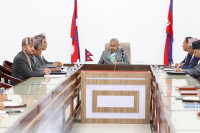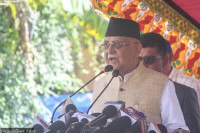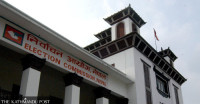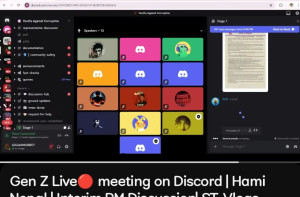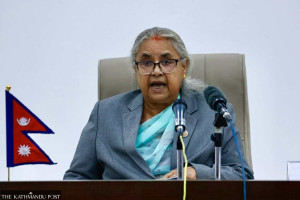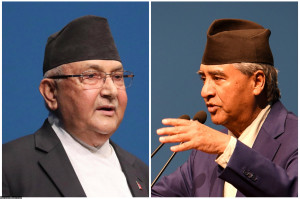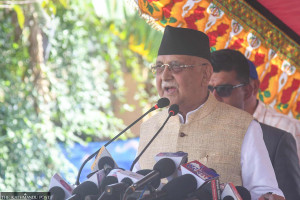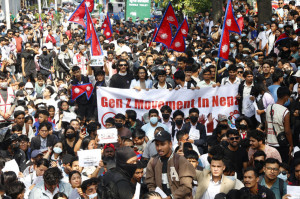Politics
What happens after Monday’s voting on confidence motion
Oli will be in difficulty if Nepal faction with its around 30 lawmakers resigns before vote.
Binod Ghimire
The KP Sharma Oli government has lost majority after the CPN (Maoist Centre) on Wednesday withdrew the support it had extended in February 2018.
With the withdrawal of support by the Maoist Centre, which has 49 seats, the Oli government is short of 15 lawmakers required to achieve a majority in the House of Representatives, which currently has 271 members. The Oli government has already announced to seek a vote of confidence and President Bidya Devi Bhandari has called a day-long session of the lower house for Monday where voting would be done on the motion.
Oli decided to seek the vote of confidence as per the Article 100 (1) of the Constitution of Nepal even before the Maoist Centre decided to withdraw its support. The Article says the prime minister, whenever he wishes, can table a motion to prove that he commands a majority in the lower house.
The House of Representatives will decide the fate of Oli if he continues to reign or loses power. The CPN-UML has 121 seats. The support of the entire Janata Samajbadi Party with 34 (including two suspended) seats or half of its lawmakers will be enough for Oli to meet the magic number 136 to remain in power. However, it is not easy as the lawmakers from the Oli’s party itself are against his continuation.
The Madhav Kumar Nepal faction of the party, which commands the support of some 3o lawmakers, is mulling over resigning en masse before the House goes to vote.
If they resign, Oli will need the support of 121 lawmakers to retain power as the lower house will have 241 lawmakers left. In the event of resignations by the 30 lawmakers, Oli will have 91 members with him and he will need the support of 30 additional lawmakers to achieve the magic number.
Oli either needs the support of the Janata Samajbadi Party or the Nepali Congress to win the vote of confidence which doesn’t seem possible. The Janata Samajbadi itself is sharply divided as its two top leaders, Mahantha Thakur and Rajendra Mahato, are siding with Oli, and as many senior leaders, Upendra Yadav and Baburam Bhattarai, want to replace the incumbent government.
The Yadav-Bhattarai faction has a support of 18 lawmakers which means the other faction, which wants continuation of Oli, has 14 lawmakers with it. Even if all the lawmakers from the UML vote for Oli and Thakur-Mahato faction decides to support Oli, he will still be one lawmaker short. The Rashtriya Janamorcha, Rashtriya Prajatantra Party and Nepal Majdoor Kisan Party have one lawmaker each.
However, it is unlikely for the fringe parties to support Oli as they have been criticising his government and the Janamorcha is in the game to topple the UML government in the provinces. “I don’t see Oli winning the vote of confidence,” advocate Mohan Lal Acharya, former adviser to the Constituent Assembly, told the Post. “Even Oli doesn’t seem desperate for it because election is his ultimate goal.”
Oli will be relieved of the prime minister’s position, as per the Article 100 (3) of the constitution, if the motion on the vote of confidence fails.
Acharya says once Oli loses the vote of confidence Bhandari should call for the formation of a coalition government as per the Article 76 (2) of the constitution.
The Nepali Congress, Maoist Centre and the Janata Samajbadi Party will have to come together to form a coalition government.
The Congress has 63 members including the two suspended lawmakers, the Maoist Centre has 49 including the Speaker and the Janata Samajbadi Party has 34 including two suspended. The suspended members are counted to define the strength of the House, however, they cannot vote as per parliamentary regulations while the Speaker can cast a decisive vote to break a tie. For the Congress and the Maoist Centre to form a government, they will need at least 24 Janata Samajbadi Party votes as the two parties combined have 112 seats.
However, only 18 lawmakers support the Yadav-Bhattarai faction making short of 6 to meet the magic number. The formation of the coalition, however, will be easier if the lawmakers from the Nepal faction of the UML resign en masse.
The Congress and Maoist Centre government can easily be formed with the support from the Yadav-Bhattarai faction of the Janata Samajbadi Party. However, no deal has been forged between the three parties yet and the Yadav-Bhattarai faction has been complaining that Sher Bahadur Deuba, the Congress president, is not willing to lead the alternative government.
If the three parties don’t present their claim within the deadline given by Bhandari, she can call for the formation of the government as per Article 76 (3). The Article allows the president to appoint the parliamentary party leader of the largest party as the prime minister.
“Oli will have a legitimate claim over prime ministership as per the provision as he will continue to be the parliamentary party leader of the largest party even if the lawmakers from the Nepal-faction quit,” said Acharya. He, however, will have to get a vote of confidence within 30 days. Experts say it seems unlikely for Oli to get the vote of confidence later when he loses it on Monday’s voting.
Article 76 (5) will be invoked, if Oli doesn’t win the vote of confidence, say the experts.
As per Article 76 (5), any member of the House who presents a ground on which she/he can garner a vote of confidence in the House gets appointed as prime minister.
According to Ram Krishna Timalsena, former registrar at the Supreme Court and the executive director at the National Law College, any lawmaker making a claim for prime ministership under the Article must give assurance to the president to garner a majority vote. “This is the last option for forming a government,” he said.
The experts say government formation under the Article is slim as it is purely a coalition government. If forming a government as per the Article is not possible or the prime minister appointed under the provision doesn’t get the vote of confidence within 30 days, the house will be dissolved as per Article 76 (7) and elections are declared so that a new House of Representatives can be elected within six months.
“The country will head towards the election if the Congress, the Maoist Centre and Janata Samajbadi Party fail to form the coalition government as per Article 76 (2),” said Acharya. “This is what Oli wants.”




 15.17°C Kathmandu
15.17°C Kathmandu
